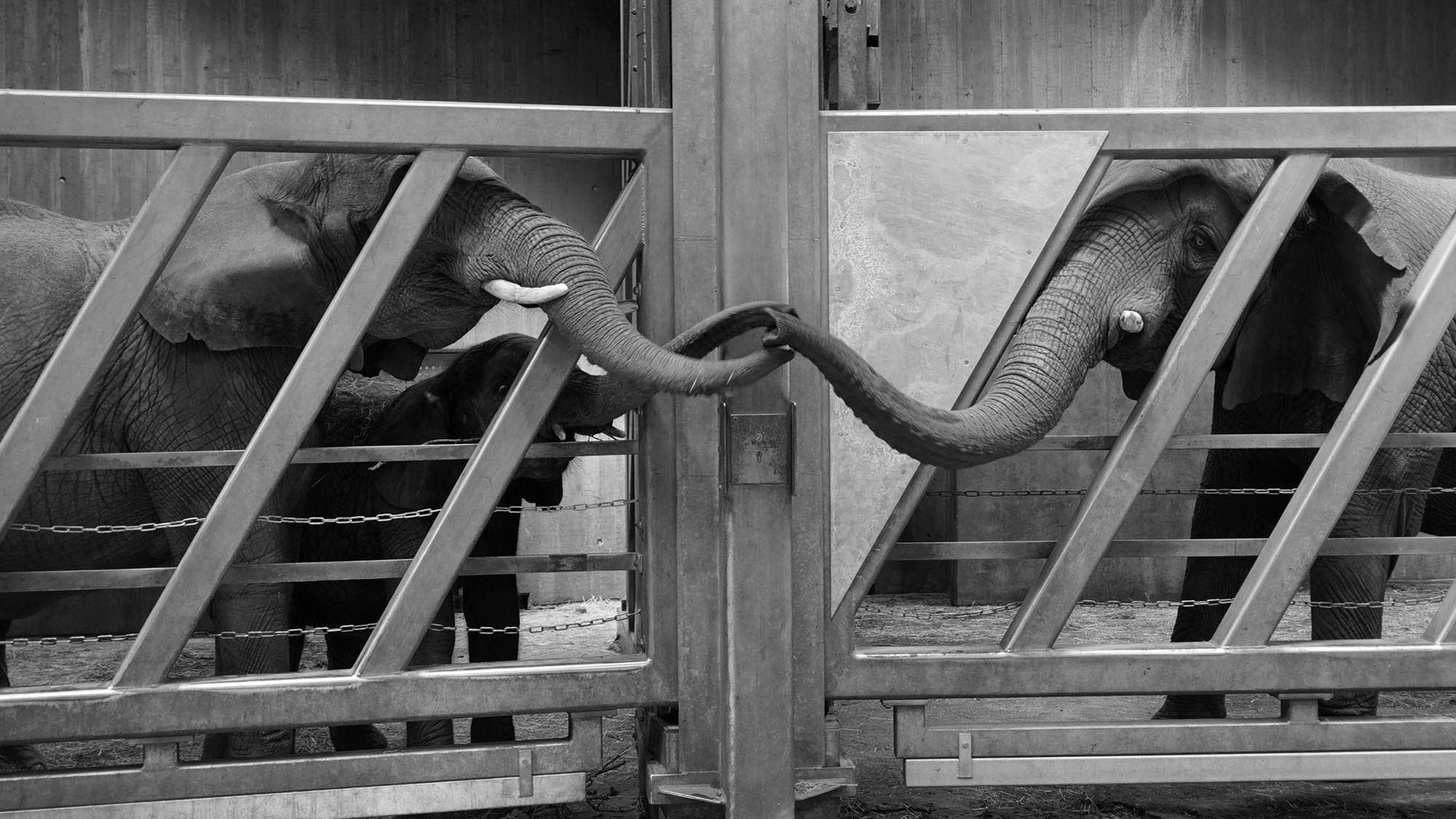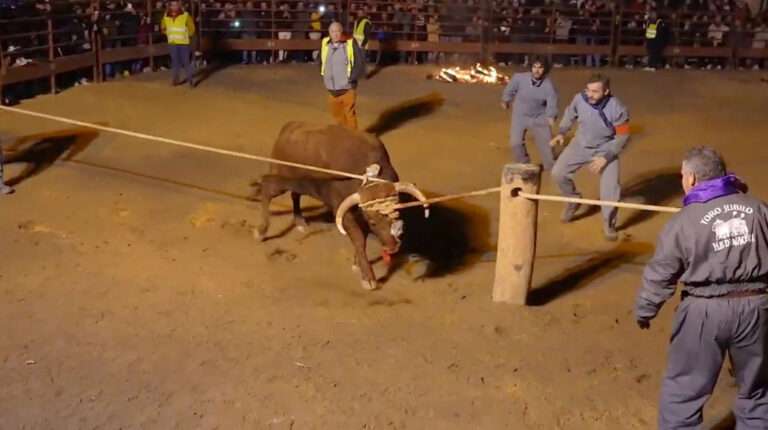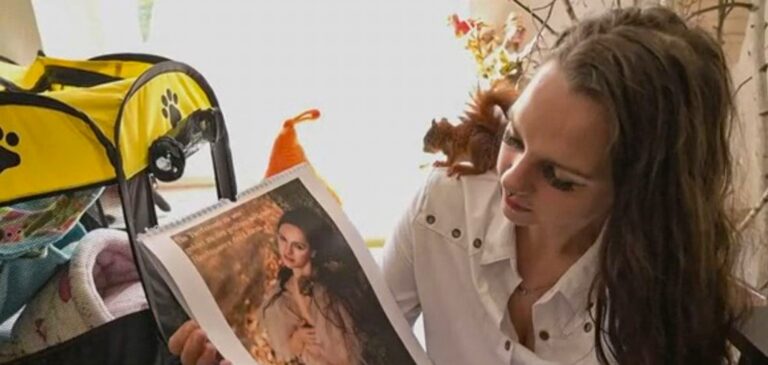This moving photograph shows a grandmother elephant touching trunks with her daughter and one of her granddaughters after being reunited with them at a German Zoo.
in the wild, although bull elephants will tend to leave the herd to form new relationships, female elephants tend to remain with their mothers and the reunion is part of a programme to slowly recreate this natural process in herds being held in captivity.
The reunion happened when the 39-year-old elephant, Pori, was moved from her former home in the capital city of Berlin to the Bergzoo in the city of Halle, in Germany’s east-central state of Saxony-Anhalt where she reunited with her 19-year-old daughter Tana after 12 years of separation.
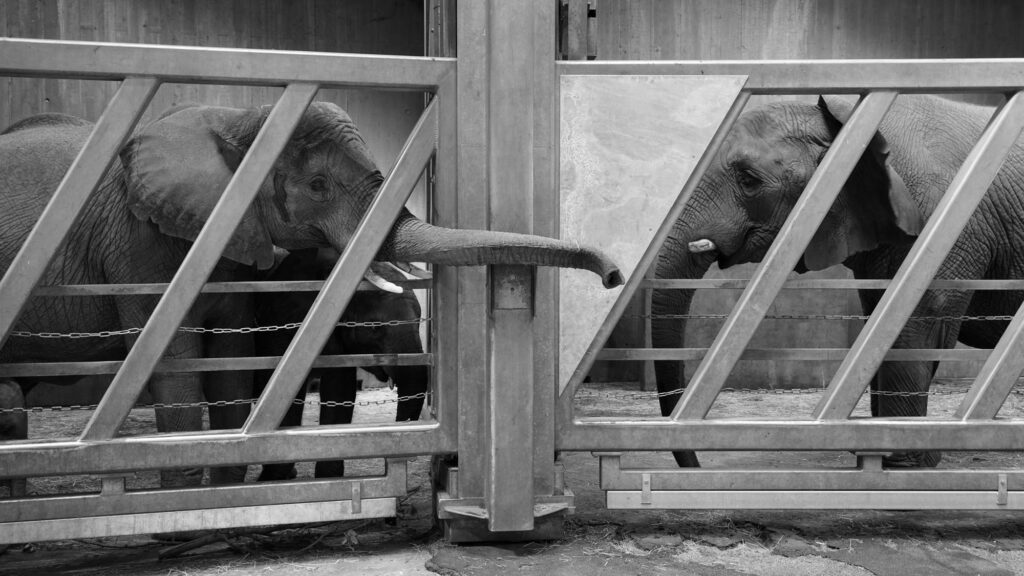
The grandmother also met her granddaughters Tamika, 4 and Elani, 1.
According to a statement sent to Newsflash, the elephant house will remain closed for the time being to give the animals a chance to relax and become reacquainted.
Visitors can still see the elephants in their outdoor area.
For now, Pori remains in a separate enclosure from her offspring, according to the statement from the zoo, although in the next few days they will spend time together in the outdoor area to get accustomed to each other.
Pori is an African elephant (Loxodonta) who was born wild in Zimbabwe in 1981 and brought to Germany to the Magdeburg Zoo, where she lived from 1983 to 1997, when she was sent to the for Tierpark Berlin for breeding purposes.
In 2001, she gave birth to and raised her first calf Tana who she has now become reacquainted with.
In nature, elephants always live together in family groups, each led by a lead member.
Daughters tend to stay with their mothers for life, while young bulls leave the herd as soon as they are sexually mature.
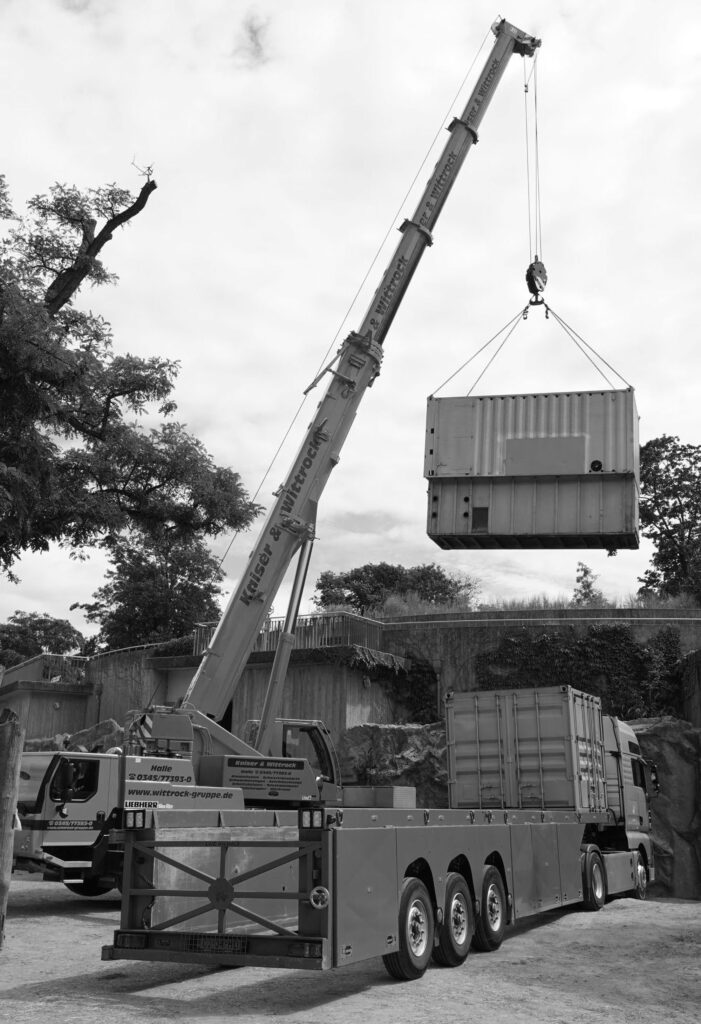
The arrival at the zoo 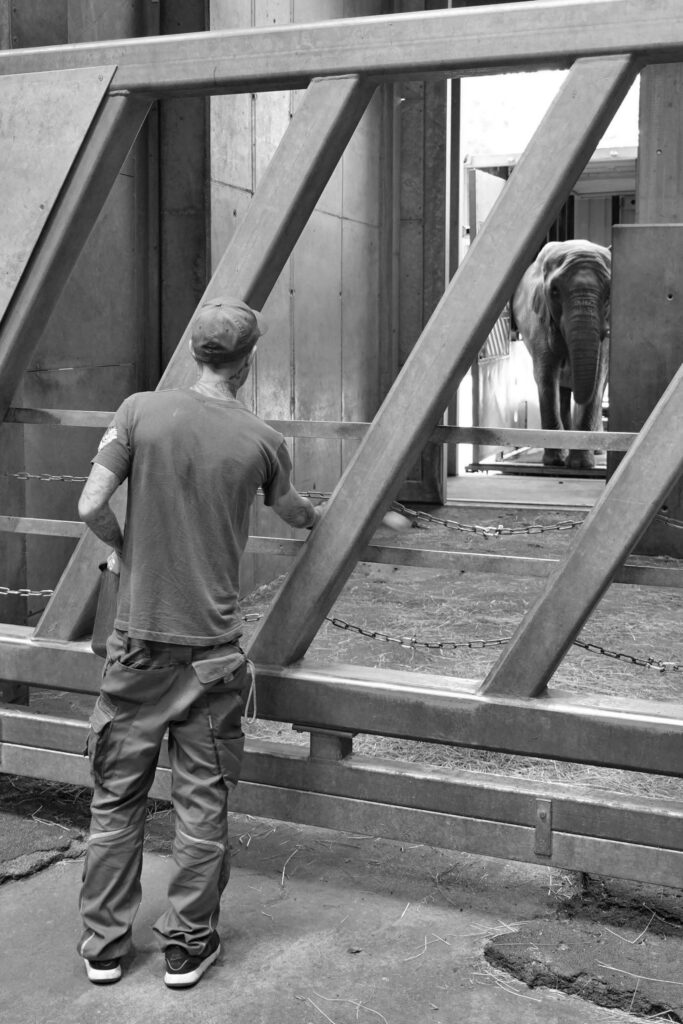
The arrival at the zoo
The Zoo director, Dr Dennis Muller, said: “Pori’s arrival in Halle is an important step in modern elephant husbandry. In the future, all elephant herds in European zoos should be cared for in such natural family structures. Today we have come a great deal closer to this goal. “
The elephant population in zoos is monitored as part of a conservation breeding program (EEP), within which committees made up of experts from different zoos determine new herd compositions and the resulting animal moves.
To find out more about the author, editor or agency that supplied this story – please click below.
Story By: Lisa-Maria Goertz, Sub-Editor: Joseph Golder, Agency: Newsflash
The Ananova page is created by and dedicated to professional, independent freelance journalists. It is a place for us to showcase our work. When our news is sold to our media partners, we will include the link here.

